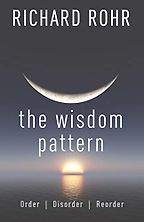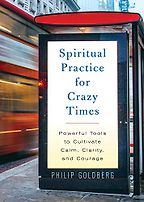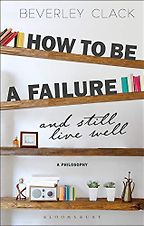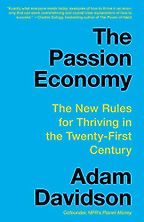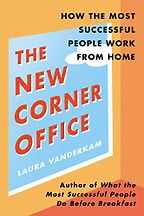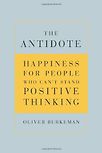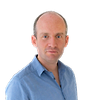I can’t think of a year in which so many people have been in need of guidance and reassurance—in my lifetime, at least. Do you think the global tumult of 2020 has created a hunger for self help books?
You’re totally right. This is a time when people are seeking guidance. There are some interesting qualities to what we’re seeking, in the sense that it doesn’t feel like a few bromides about getting organised or cheering up are going to do the trick. It feels like we’ve been living through history with a capital ‘H’. We need guidance to understand how to handle coming up against our limitations as individuals and as societies. That’s definitely a theme of some of the books I’ve selected here.
But that’s self help all the way back, right? It connects what we think of as self help today right back to The Consolation of Philosophy, Ancient Greek and Roman thinking, and a huge amount of Christian writing. It was as much about coping with the human predicament as it was about self-improvement.
Get the weekly Five Books newsletter
Obviously the lead times involved in publishing books have not allowed many books to respond to the pandemic, or to the political and social protests of this year, yet. I’ve been finishing a book this year myself that is, on some level, self help. So I’ve been trying to make it speak to these times, while also, hopefully, not just reflecting how I was feeling in July while I was editing mid-pandemic.
James Hollis, a Jungian psychotherapist, put a book out in the last few months called Living Between Worlds, which speaks to living through situations of extreme uncertainty—which I feel is a unifying theme here—and how we need a solution that isn’t just ‘making the uncertainty go away.’ In a way, perhaps it’s a good thing that we can’t even pretend that a predictable, planned-out life is possible at the moment, because it means living in a very undeluded way. But it’s definitely painful.
You touched on the Christian writing of the past; let’s talk about a work of Christian writing in the present. Your first self help book recommendation from 2020 is The Wisdom Pattern: Order, Disorder, Reorder by Richard Rohr, who I believe is a Franciscan priest. Why do you admire this book—and will it appeal to a secular audience?
Yes! I mean, I’m a secular audience. I’m more interested with every passing year in Christian writing, but I’m still a secular audience. This is an adapted reissue of a book that first came out right after 9/11, though references to Covid have been added in the appropriate places. But essentially it’s an exploration of the idea that in all sorts of mythologies and religious teachings, and in our individual lives, there’s a recurring pattern of leaving a state of orderliness for disorder and confusion, then pushing through until you get to a new order, a new understanding and way of living.
I don’t remember whether he talks about Jung, but I’m into Jung, and Jung talks about how the biggest problems in our lives are never really solved, but outgrown. He compares them to being in a storm on a mountainside; you keep climbing up the mountain until you pass through the storm clouds, and then the storm is below you—but it hasn’t gone, it’s that you’ve integrated it into your life.
You’ve learned to adapt so that the storm, or disordering force, no longer impacts you in the same way.
That seems like a useful way of thinking about the uncertainties of the world. Trying to go back to what we remember life was like before is probably not going to be the most resilient approach.
He also argues against what we can think of broadly as postmodernism, though I think he has a more nuanced view about this than some commentators. He says that, when everything falls apart, or when our common understandings fall apart, or when science doesn’t seem able to guarantee us meaningful lives, there’s an impulse to conclude that there are no patterns, no grand narratives. It’s a cynical way of thinking—it suggests there’s nothing you can do—but it also puts you in the godlike position of claiming to know that there’s no order to the way human lives or civilisations unfold. Instead we need to be open to the idea that there are patterns and that we might not know exactly what they are.
“He compares problems to storm clouds; keep climbing the mountain until you pass through the clouds, and then the storm is below you”
This is where something that might seem recognisably Christian speaks to me, I think, without necessarily signing up to a whole bunch of beliefs: just this state of receptivity to the idea that you might not know all there is to know, and opening oneself to the idea of being governed by some kind of higher wisdom—not even the Christian one, necessarily. It’s an attitude of mind that has to do with understanding or accepting your own limitations and imperfections, not trying to escape the situation of being human.
And having no narratives is clearly associated with a general sense of loneliness and isolation, and of life being absurd. Someone, somewhere, defined depression as the absence of meaning, which is an interesting thing to consider, whether it’s true or not.
That makes sense. What you said about being drawn towards Christian teachings in the absence of belief really chimed with me. I find in my own writing—and in life more generally—I often turn to biblical references. This year I’ve thought a great deal of Julian of Norwich—and her assurance that “all shall be well and all shall be well and all manner of things shall be well.”
Maybe, as a continuation of a theme, we could turn to Goldberg’s Spiritual Practice for Crazy Times next? Whilst we’re all spending a lot of our time doomscrolling, or whatever it is we’re calling it, I think this sounds like it could be a lot of practical use.
Yes. For me, a big challenge from this year has been trying to figure out my own relationship with the news. This is partly a matter of doomscrolling and finding Twitter very addictive. But it’s also the question: what are my responsibilities? Given that it doesn’t seem to make me a happier person or make the world a better place when I spend most of my day immersed in American politics, or in the British government’s response to Covid-19, that seems to call into question the old-fashioned idea that being an informed citizen—constantly discussing this stuff around the dinner table, staying up to date with what’s happening in the world at large—is the pinnacle of being a good human.
And, as my son grows up out of toddlerhood, I find I’m not too sure that I agree with the prevailing wisdom that constantly talking at home about climate change and racial justice—things that really matter!—is the right approach. I find myself wondering if, actually, a certain amount of protection from the outside world has a role here.
Five Books interviews are expensive to produce. If you're enjoying this interview, please support us by donating a small amount.
Anyway, that’s all by way of a preface to discussing what Phil Goldberg calls ‘spiritual practice’, by which he mainly means various approaches to meditation, and various ways of shifting your perspective. It’s not a question of: ‘Are you going to be a hermit and spend your life meditating?’ or ‘Are you going to engage?’ but that having a kind of inner sanctuary is a precondition for engagement in the world in which we live.
He doesn’t put it quite this way, but a lot of this is about stewarding your attention, training your attentional faculties. We have good reason to believe that if you do that, and persist at it, it can lead to some more dramatic ‘spiritual experiences’, and grasping certain deep truths about reality. But I also think they’re very useful just as tools for living in the world that we live in, with an economy that profits directly from taking control of your attention.
This is a very practical book. He talks about how to fit meditation into your day, that sort of thing. It has this feel of—this is language that Western Buddhists, meditation people, use—creating a refuge from the world inside yourself, rather than needing to retreat to a cabin on top of a mountain, or quitting online news altogether.
A necessary skill set. I mean, I’m all for retreating to a cabin on a mountain, but I also need to interact with contemporary society. If you are unable to withdraw from the constant flow of information, it can sweep you away.
I think that’s true. What you just said reminded me of an interesting point—I’m speaking from other sources, rather than this book specifically. There’s evidence for certain kinds of mystical experiences going back right to the beginning of the human species. But formal meditation, of the sort where you sit down and train your mind, is new, relatively speaking. It’s a few thousand years old, as far as people can tell. And I’ve seen it argued that this is because meditation is a response to what people felt happening to their attention when cities started to develop, when some early form of information overload began—when people were no longer just living in bands of twelve in rural isolation.
This is fascinating to me, because it suggests that, actually, they were struggling with the equivalent of what we’re struggling with today when we’re trying to figure out if it’s possible to use Twitter in a sane way.
That makes me think of the moral panic that surrounded the advent of cheap paper. There were widespread fears that dime novels and ‘yellowback’ books were driving young men to violence. People reading newspapers in public were thought to be rude, the way we consider people on their mobile phones to be rude now.
Yes. Although people always use that example to imply we should just stop worrying. But maybe some aspects of our inner experience were better before we were reading books?
Oh no.
I don’t know. Or before TV? Or before radio? Maybe it has just been a long slow decline. Because we have no access to the pre-printing press mind, how would we ever be able to know? But we are where we are. And I’m not suggesting we go back.
Well, I’m going to further the interests of Big Print by turning to our next book. This is Beverley Clack’s How to Be a Failure and Still Live Well. Why did it make your list of the best self-help books of 2020?
What I admire about this book is that it takes on a topic that’s had a lot of exposure in popular writing in recent years…
…Yes. We’ve also had Elizabeth Day’s How to Fail, and Joe Moran’s If You Should Fail…
…and, indeed, this is something I touched on in my own book, the way we hear so much about needing to be willing to fail, and what people really mean by that and how helpful it really is, or isn’t. But what really impressed me in this book is that Clack connects the idea of failure to the idea of loss, noting how we confuse the two: maybe failure is avoidable in some sense, maybe it’s your fault in some sense, but loss is just completely intrinsic to being a human. Living and dying, getting old, finitude—these are just the fate we all face as a result of just being who we are in the situation that we are in. There’s a connection to Rohr here, because it’s about human limitation.
“Maybe some aspects of our inner experience were better before we were reading books”
She writes about her own experience of miscarriage as one particularly vivid way of understanding this kind of encounter with loss. But then the way we talk about ‘failure’ has this effect of—I don’t know if she would put it this way—implying that if you got things right, you could have avoided loss. And in certain specific situations that could theoretically be true. But obviously you can’t avoid the sense in which human life is about loss. Being a finite human is inevitably a matter of deciding which of your ambitions you’re going to focus on, because you don’t have the time or resources to do everything, so in this and many other ways, it’s all about facing the reality of death. She quotes Anthony Giddens, the sociologist, who writes that death is “nothing more or less than the moment at which human control over human existence finds an outer limit.”
Clack also talks very eloquently about the fact that because human meaning is found above all in relationships of all sorts, there’s a sort of loss or failure that’s essential to a meaningful life, because relying on relations with others is another kind of expression of limit. It’s an expression of the idea that you can’t go it alone, you need to some extent to surrender to being in relationship with others. That in itself is an example of how not being completely in charge of yourself and your life outcomes is unavoidable, but also that you wouldn’t want it any other way, because that would be so empty. Does that make sense?
Yes. What of Clack herself—she’s a philosopher?
Yes. It’s a philosophy book, but it’s very accessibly written.
The effect it has for me is that—this is a theme that crops up in lots of places—if you come to see certain things that you are trying to do in your life as just kind of structurally, intrinsically, logically impossible, then it’s a lot easier to stop beating yourself up for not doing them, isn’t it? And this includes the attempt to avoid all loss, to not have to make hard choices and sacrifices with how you deploy your limited time and resources. It’s impossible.
This is a theme of the book I’m finishing up at the moment as well. If you can get clear on what in life is actually completely inevitable versus what isn’t, you can bring a lot more time and energy to focus on doing a few cool, meaningful things with your life, rather than spending it railing against these built-in limitations of being human.
Right. Because I suppose the emotional nature of failure is all tied up in regret. And people are very risk averse when it comes to doing things they might regret. It’s one of the things we’re most fearful of.
Exactly. I think that connects directly. Because once you see that regret is inevitable, why stress about it? Kierkegaard had that funny line, “If you marry, you will regret it; if you do not marry, you will also regret it.” You can be bound a lot less by trying to avoid future regret—which is a very limiting way of going through life, and keeps you from committing to people and projects—if you see that that ship has sailed. You’re going to have regrets, if you’re predisposed toward regret! (Unless you’re not the regretting type, in which case you won’t.) Because there’s no option where you get to live out a life of the married and a life of being single, a life of having four children, and a life of being child-free. Once you internalise that, you can throw yourself into whatever you do choose with a lot more vigour.
I can see that this mode of thinking could be very helpful. But I’m interested in what you said about some people being predisposed towards regret. If we are, can we change that? Do you think processing this idea, stepping through the logic of it, has been of practical use to you?
Yes. That’s always the question with self-help books: what’s to stop you reaching intellectual insight but then carrying on with your existing, neurotic ways? But I think a book like this begins to wear away at certain ways of seeing the world that might have become entrenched, or calcified. It can open you up. It’s a very slow process.
All I can say is, I read these books, and think through this stuff—then I look back on recent decades of my life, and I think I’m becoming a little bit saner, and doing a few more things that I’ll be happy and proud to have done with my time! But who knows what I’ll think later on?
Absolutely. And I think we have to be receptive to the lessons self-help books have to teach us. Or anyone else. I often see that interaction on social media: people post a grievance, and then dozens of people reply with advice. It doesn’t really work, when the advice—however hard won—is unsolicited. I guess what I’m getting at is that you only properly process guidance when you’re in the frame of mind to do so.
Yes. I think it’s also useful to cultivate the attitude that the advice you need might not be the advice you want to hear.
Yes.
But that’s a very difficult thing to tell someone else. And, yes, it’s a very clichéd, gendered thing in relationships, isn’t it—the person seemingly seeking advice actually mainly wants to be heard, but the other person responds by immediately coming up with solutions, which misses the point. And I am that really annoying bloke who goes straight to solutions—although I think less so than I was. Maybe some of the writing I do is an alternative outlet for that! But you’re absolutely right: people move too fast to the stage of, ‘here are the three fixes you need.’
In those Twitter exchanges, I don’t know what the original posters’ agendas are in the first place—being so public about anxieties or sufferings—but it isn’t usually that they want to be directed to a web page, or a three-step solution. That feels like it’s cheapening, as if it undermines your right to have those feelings.
But people seem to find other people discussing their problems provocative, somehow.
Yes. Another thing: I think advice-giving in general is almost always a kind of effort to work through your own issues, perhaps even to justify your own choices. I think it can be done transparently and with integrity—I hope that when I’m giving advice that I try to do that! But very often people are doing it to make themselves feel better, and they don’t always see that that’s what they’re doing.
Well the final choices for your list of the best self-help books of 2020 fall together quite nicely, shifting us into the world of work. Let’s start with The Passion Economy by Adam Davidson. The title made me a bit suspicious: it sounds like it will be instructing us to follow our dreams, advice I normally consider pretty wishy-washy and unhelpful. But Davidson is an accomplished economics journalist and creator of the very good Planet Money podcast. So it must be pretty grounded in reality.
Yes, I think so. Although reality has shifted under it, because it was largely written prior to what’s happened to the economy this year. But I don’t think that undermines its message.
I agree with you: I’ve written, and totally believe, that the idea that we have one passion that we have to discover in life, or that if you follow your passion you don’t need to worry about anything else, is not useful. But he’s not making that argument. He’s saying, through a sequence of interesting case studies, that it used to be the case that you had to choose between doing what enthused you and felt deeply meaningful, or making a stable living. But now you don’t have to choose—in fact, you kind of have to choose the opposite, at least for a certain demographic. That doing the things you’re passionate about, that really fire you up, are often the best way to flourish in this new economy.
Granted, there’s a whole other book to be written about how there should probably be universal basic income, and more progressive taxation; we shouldn’t be having to lecture people on how to stay afloat. But putting that aside, I think it’s a very powerful argument, based on the well-known truth that more and more of industry is being automated. That’s been true for a long time in the manufacturing of simple, cheap consumer goods; but it’s also happening now with all sorts of ‘knowledge work’ careers as well.
“If my career is going to go in the direction I want it to, it’s going to involve reaching out directly to the people who are into the kind of stuff I do”
The example people always give is routine accountancy and legal work—things that once needed a highly skilled professional with a flair for that work. But, increasingly, doing your tax preparation just requires a piece of software. Journalists are constantly freaking out about how routine news stories can also now be written by robots, by artificial intelligence. And it follows that as this process escalates, what will retain its value is the human spark that can’t be replicated in that way: people who tell stories really well, people who can create beautiful objects that can’t be replicated 1000 times, people who can tailor their services to extremely specific segments of the audience.
A lot of his examples have to do with people taking a business model that once could have been a service with hundreds of thousands of clients, and instead offering services to a far smaller number of clients, but who are willing to pay more money. Specialized accountancy services, niche clothes designers, people serving the Amish farming community, there’s even a high-end pencil manufacturer in the book.
I’ve been thinking about it in terms of my own work as well, increasingly. I feel it’s probably the case that, if my career is going to go in the direction I want it to, it’s probably going to involve more directly reaching out to the specific people who are into the kind of stuff I do, as opposed to holding out for the blockbuster, the one-in-a-million chance that will make you a name in every household in the land.
He sets up the book with a story about his father and his grandfather, both called Stanley. Stanley his grandfather worked in a ball bearings factory, and it never occurred to him to find it fulfilling. But he provided for his family. Stanley the father rejected it to become an actor. Davidson writes that he always saw life as a choice between these paths, but that now, for the first time ever perhaps, you don’t need to make that choice. In fact, you shouldn’t make it.
Yes. This is analogous to what I’ve learned, I think. I remember when I left a full-time job to go freelance, it felt like the riskiest move in the world. But actually, when it comes down to it, my self-employment has turned out to be a lot more stable than many staff jobs on newspapers. Had I thrown in my lot with one big company after another, I might have been made redundant several times over by now.
You’re totally right. Because any one of your income streams can be threatened without it threatening the whole. I mean, if you had a few thousand pounds to invest in stocks and shares, no one would tell you to invest it all in one company, but that’s exactly what we do with our jobs—or at least, what we have traditionally tended to do.
Definitely. So, this year, most office workers have had to come to terms with working from home. I have to admit that I’ve enjoyed everyone else’s descent to my own levels of hygiene, work attire and time management. It’s been very reassuring. Here’s a book that will hopefully help others who are new to it, The New Corner Office: How the Most Successful People Work From Home by Laura Vanderkam.
Yes, it’s become an incredibly important question for a lot of people: how to work well from home. The irony of all this is that a lot of managers, and perhaps the culture more generally, have tended to be suspicious of people working from home. But the general experience, anecdotally, from people who work from home is that the problem is not that you don’t get around to work. It’s that work bleeds into every moment of life. This feeling of the boundaries of time being eroded is what everyone talks about now, in terms of the experience of lockdown, and that more generally we’ve lost our moorings with regard to time.
People hate commuting, but you can’t deny that it’s a time boundary that helps to separate one thing from another. Those sorts of boundaries have been in decline for a long time, because I can check email on my phone at midnight. But Covid has really exacerbated things.
Vanderkam is an interesting writer because she really bridges this traditional self-help form of ‘Here’s what you need to do! Here are the tactics for managing your time!’ with a more philosophical understanding of what’s going on, and a more realistic attitude to what people can actually do, under the different pressures in their lives. Maybe that’s just another way of saying that she’s a female writer with a family, who understands all these pressures, instead of writing from the perspective of a sort of disembodied businessman, like the traditional time management guru. So it’s about building a serious career, while also having children sticking bread with peanut butter to the floor. Working from home is where the rubber meets the road there—especially for people who have had their school-age kids at home with them as well.
“Clearly, endless ten-person Zoom calls are not the way to recreate the social benefits of office life”
There’s a lot of useful information, and a lot of case studies that inspire confidence: if these people can do this, so can you. I particularly like her governing idea of managing at the level of tasks, not time, which is something I now realise I’ve been moving towards in my own thinking, although not quite in those words. It’s a matter of making your primary focus what you want to do, what it is you want to create or achieve, rather than focusing first on feeling like you ‘need to put in a working day’ or anything like that. Figure out what needs doing, and assign times for when you’re going to do it, and accept that this doesn’t need to look like a traditional working day. Sometimes it might mean working longer than you’d like, but at other times it could mean stopping at 2pm without feeling guilty, or working much more efficiently because you’re working at those times when your energy is highest.
Although it’s less true since my son came along, the big thing when I was first working from home was that I immediately and naturally shifted everything forward, so that I was at my desk at 7am, but probably wouldn’t be there past 2pm, ever.
Interesting, I’m the opposite. I get up late but work into the night. Again, this just happened quite naturally when I had freedom to organise my own schedule, after a few months of nervously sitting at my desk all day from nine until five, even when I didn’t have enough work to fill the hours. I hope Laura Vanderkam’s methods become more mainstream.
The other thing we really need to think about, though, is what we got from office life, and make sure we are getting it in other ways. Clearly, endless ten-person Zoom calls are not the way to recreate the social benefits of office life, which do exist, or the creative benefits of spontaneous conversations. But I found during the height of lockdown that I actually felt more connected to the physical world than I ever have. I ended up going on far more walks, alone and with friends and family, than I would have done previously, and that has continued.
To close, a bonus book recommendation. You wanted to recommend Too Much and Never Enough by Mary Trump, which I—the Christmas Grinch—would not allow you to select as one of one of the best self-help books of 2020. But I am intrigued as to why you wanted to include it, and why it might be considered helpful from a self-help perspective.
So, Mary Trump is President Trump’s niece, the daughter of a brother of his who died in 1981. She’s a qualified psychologist. It’s her take on what was so wrong with their family that it resulted in Trump being the way he is. This was a very controversial book; the White House tried to stop it being published and failed.
Part of her psychological explanation—she’s not an objective observer, of course, but she’s very sharp—is that the Trump family saw a lack of success as basically equivalent to death. You lived your life in constant fear of not being top dog. Maybe this crazy post-election period will be a test of this theory—maybe he’ll explode once he finally has to accept his loss. But I think we ought to be bringing more of this kind of psychological understanding to bear on what drives politicians.
People don’t always like it, because it often ends up looking like you’re trying to excuse them for their worst behaviours. But reading that Donald Trump’s father only showed affection towards his children when they were succeeding, and mocked his older brother for being a failure and a loser even as a young man, it does give you a sudden, scary moment of empathy.
Get the weekly Five Books newsletter
But I don’t think that’s the point. The point is that it stops you, yourself, going crazy in a world of mendacious leaders and political conflict, if you can understand a little bit about how all this happened. I get a similar feeling when I suddenly realise how many people governing Britain today, and over the last decades, went to boarding school from a very young age. I just cannot begin to contemplate what that does to you, given your need for your parents at that age. So I think it’s interesting as a way of understanding politics, and a way of not being driven totally crazy by politics. It gives you this little thing in the back of your mind, where you understand that even the worst people are somehow acting out of fear, trying not to feel things that they fear it might destroy them to feel.
I don’t think it means you have to start being sympathetic to bad leaders. Maybe it does mean that you have to start being sympathetic to those who support them. It has a sort of equalising effect, because you think, well, I’ve got some of the same things going on! I think it’s just generally good and therapeutic to go through life with this psychoanalytic lens. It’s a good pair of spectacles to be wearing—and Trump is such a vivid example of how our unexamined psychological issues can lead us to bad places.
Part of our best books of 2020 series.
Interview by Cal Flyn, Deputy Editor
December 15, 2020. Updated: May 15, 2024
Five Books aims to keep its book recommendations and interviews up to date. If you are the interviewee and would like to update your choice of books (or even just what you say about them) please email us at [email protected]
